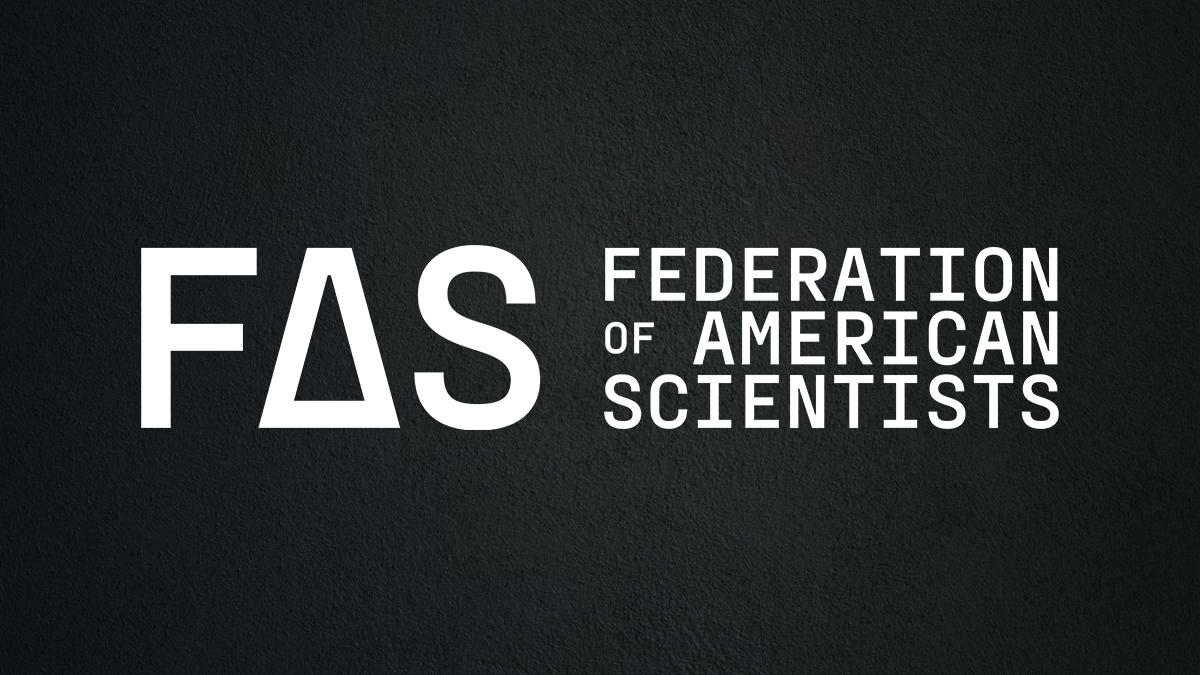
FAS Taps Jon B. Wolfsthal as New Director of Global Risk
The Federation of American Scientists is excited to welcome Jon B. Wolfsthal as the organization’s new Director of Global Risk. The Global Risk will encompass nuclear policy, FAS’ longstanding Nuclear Information Project, along with other emerging global threats.
“We could not be more thrilled to be bringing on a leader with Jon’s dedication, knowledge and experience,” FAS CEO Dan Correa said. “We take FAS’ legacy of leadership in nuclear policy and transparency extremely seriously, especially at a time when the threat to the world seems to be resurgent. Our Nuclear Information Project continues to be a globally-renowned source of information on nuclear weapons for both world governments and the public, and Jon will help take the work even further. His track record as a leading thinker on global threats will also help FAS tackle emerging policy challenges as well.”
Hans Kristensen, Director of FAS’ Nuclear Information Project, added, “I have long admired Jon’s insights and intellect when it comes to nuclear policy and arms control. His resume speaks for itself – we can’t wait to start working with him at FAS.”
Jon B. Wolfsthal most recently served as a senior adjunct fellow at the Center for a New American Security in the Transatlantic Security Program. He is also a member of the Science and Security Board of the Bulletin of the Atomic Scientists and a member of the US Department of State’s International Security Advisory Board. He served previously as senior advisor to Global Zero in Washington, DC.
Before 2017, Mr. Wolfsthal served as Special Assistant to President of the United States Barack Obama for National Security Affairs and is a former senior director at the National Security Council for arms control and nonproliferation. He also served from 2009-2012 as Special Advisor to Vice President Joseph R. Biden for nuclear security and nonproliferation and as a director for nonproliferation on the National Security Council.
During his government service, Mr. Wolfsthal has been involved in almost every aspect of U.S. nuclear weapons, deterrence, arms control, nonproliferation policy. He helped negotiate and secure the ratification of the New START arms reduction agreement with the Russian Federation, helped develop nuclear policy including through the 2010 Nuclear Posture Review. He has worked on efforts to secure vulnerable nuclear materials, helped guide U.S. nuclear weapons targeting and deterrent policies, and supported efforts to prevent the acquisition and use of nuclear weapons by North Korea and Iran. He also served as a career civil servant at the U.S. Department of Energy from 1995-1999 in a variety of capacities, including the on-site nuclear monitor at Yongbyon, North Korea during 1995-96.
Aside from his government work, Wolfsthal has served as Deputy Director of the James Martin Center for Nonproliferation Studies at the Middlebury Institute for International Studies in Monterey. He has also been a senior fellow at the Center for Strategic and International Studies and was deputy director for nonproliferation at the Carnegie Endowment for International Peace.
With Joseph Cirincione, he is the author of Deadly Arsenals: Tracking Weapons of Mass Destruction and a leading authority on nuclear weapons policy, regional proliferation, arms control and nuclear deterrence. He is author of the Trillion Dollar Nuclear Triad, and the editor of the Nuclear Status Report. He is the author of dozens of scholarly articles, reports and scores of op-eds and published thought pieces, and has appeared on or been quoted in most leading domestic and international news media outlets (New York Times, Washington Post, The Economist, CNN, NPR. BBC, CBC, VOA, etc).
Wolfsthal officially joins FAS in October 2023.
January brought a jolt of game-changing national political events and government funding brinksmanship. If Washington, D.C.’s new year resolution was for less drama in 2026, it’s failed already.
We’re launching a national series of digital service retrospectives to capture hard-won lessons, surface what worked, be clear-eyed about what didn’t, and bring digital service experts together to imagine next-generation models for digital government.
How DOE can emerge from political upheaval achieve the real-world change needed to address the interlocking crises of energy affordability, U.S. competitiveness, and climate change.
As Congress begins the FY27 appropriations process this month, congress members should turn their eyes towards rebuilding DOE’s programs and strengthening U.S. energy innovation and reindustrialization.